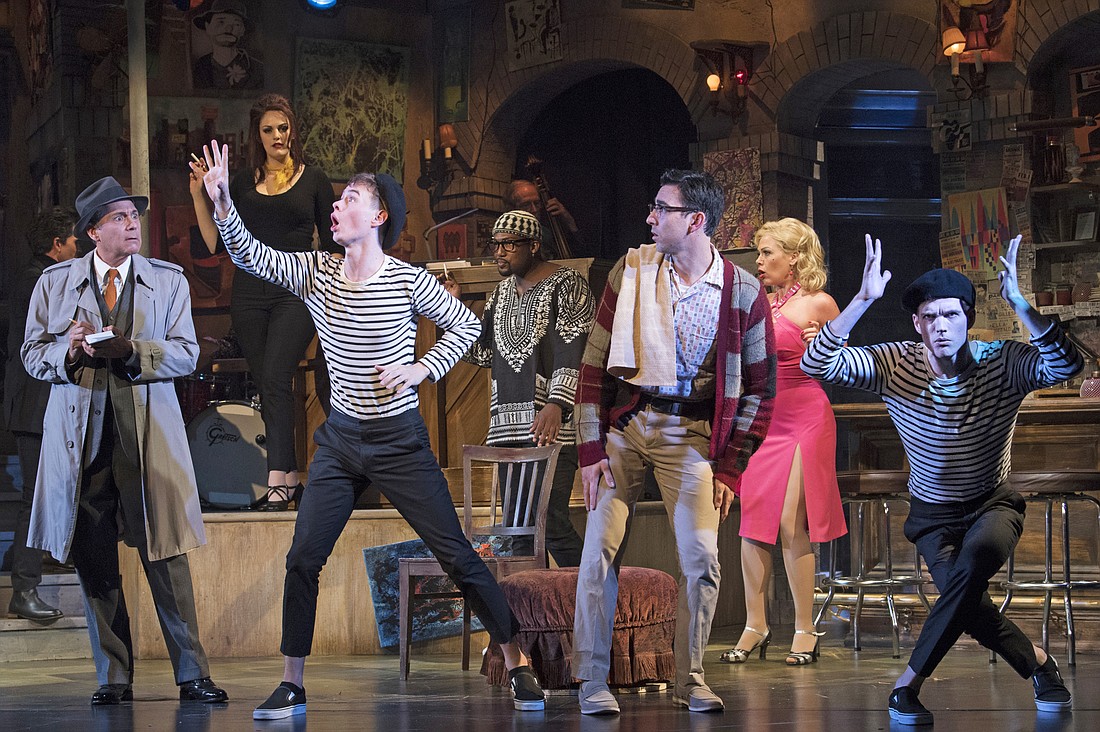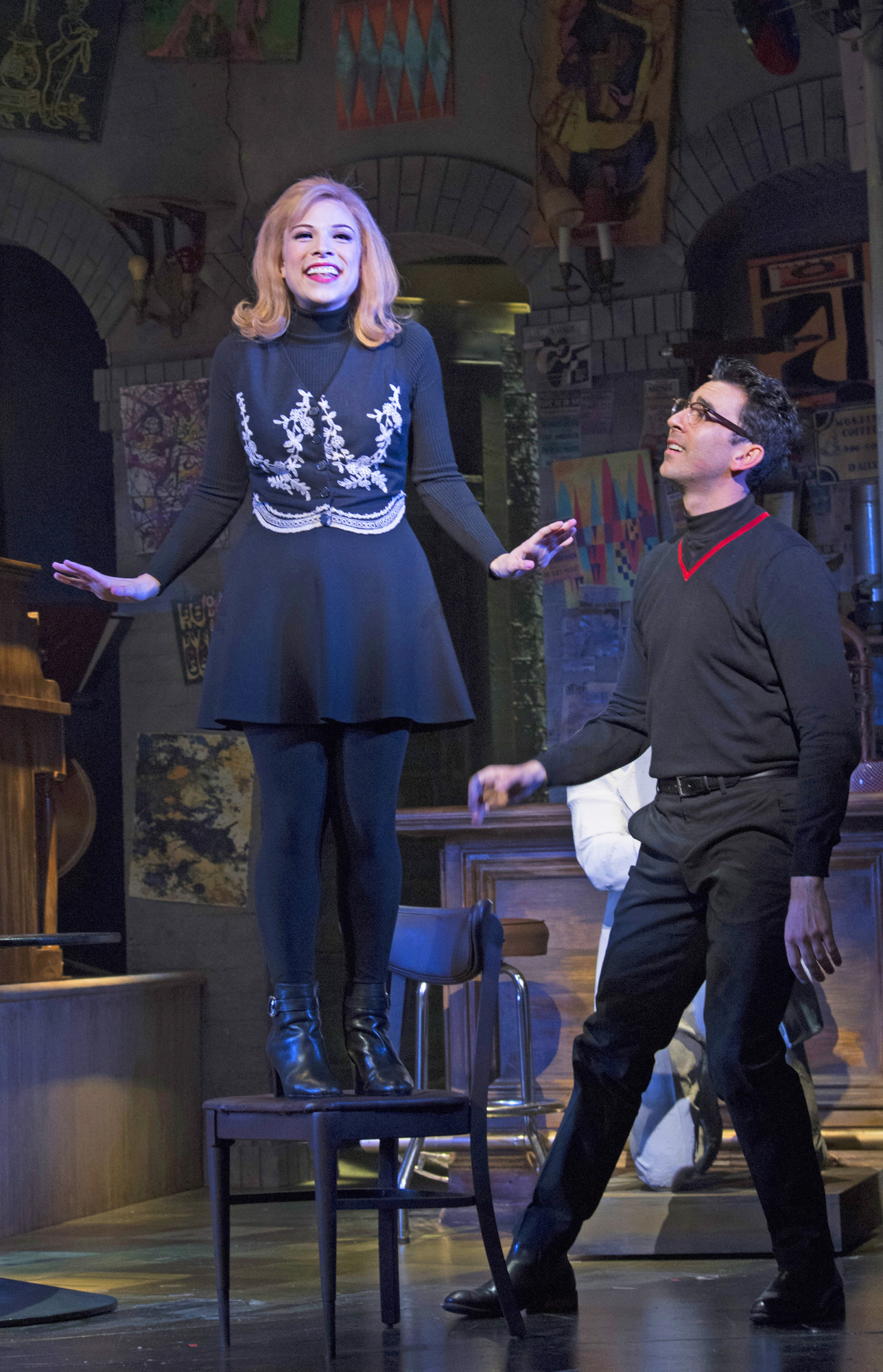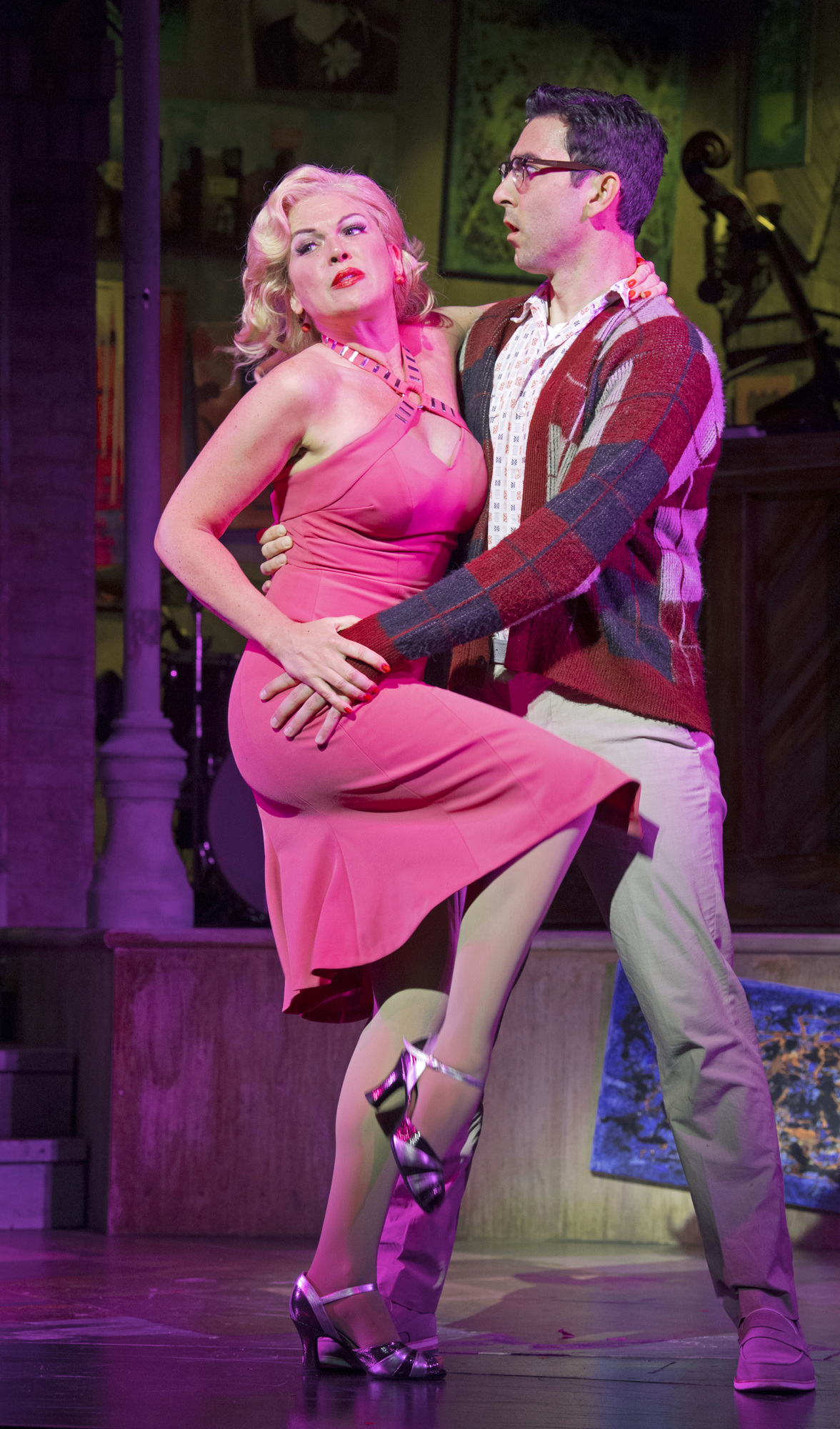- May 16, 2024
-
-
Loading

Loading

They’re stylish, they’re creative and they’re fresh. They’re cool cats who are tuned in to the lingo of the time. They wear berets, smoke cigarettes and prefer intellectual, artistic conversation.
They’re beatniks, the subject of the Asolo Repertory Theatre’s latest show, “Beatsville: The Beatnik Musical.”
“Beatsville” is a coproduction with Seattle’s 5th Avenue Theatre about the wannabe artists of the beat movement of the late 1950s, during which, figures such as Jack Kerouac used art and literature to rebel against the conformist culture of Eisenhower’s America.
Bookwriter for the production, Grammy winner Glenn Slater, created the piece with his wife, composer and lyricist Wendy Wilf, when they started seeing parallels between the Brooklyn hipsters of today and the Greenwich Village beatniks of the late ‘50s.
“There’s a hipster culture in every era, and it’s always the same,” he says. “It’s always the people that have no talent following the people who do have talent and echoing the way they talk, the way they dress, the way they feel, the places they go.”

Slater says that, rather than being artists, the beatniks were the “wannabes and posers” who had no talent or skill and tried to feel a part of the movement by copying the beats. In the act of trying to be just like them, he points out, they ironically ended up doing exactly what the beats were against: conforming.
“I think there’s a basic human yearning to stick out, to be an individual, and not everyone can do that with their gifts, so they try to find another way to do it,” Slater says. “Ultimately, it makes you less of an individual.”
The idea for the musical came to Wilf and Slater 10 years ago, but it wasn’t until the past few years that they could fully commit to it. Slater says most people think because they’re married, they would have plenty of time to work, but being married to your creative partner means you’re more willing to give them excuses not to.
“Wendy could say to me, ‘Can we meet to talk this afternoon?’ and I would say, ‘Well I have to take the kids to soccer practice’ and she can’t really say no,” he says with a laugh.
Despite having to balance their family life and work life, the couple eventually found the time to sit in the French cafe at the bottom of their apartment building and work on the piece late at night or when their kids were at school.
He says that because they have such identical artistic sensibilities, he and Wilf can essentially finish each other’s thoughts. So when they finally found the time to sit together and work, everything came out fast.
“We’d have a burst of conceptual activity, then go to our separate corners to pound it out, then come back together and have a burst of activity,” Slater says.
What resulted was a piece that combines two of Wilf’s greatest passions: bebop jazz and musical theater. Slater says Wilf derived much of her inspiration for the compositions from vocalese, a form of jazz in which vocalists set lyrics to recordings of saxophone or trumpet solos, which made for less of an artificial sound and more of the ebb and flow that is characteristic of jazz solos.

He says by marrying vocalese with traditional musical theater, Wilf was able to tell the story of Walter, a busboy at the hippest restaurant in Greenwich Village in 1959 surrounded by artists he aspires to be like, through music. The dialogue involved in Walter’s story is freer, “tumbling out spontaneously from the characters’ mouths,” which is largely due to the rhythmic nature of the beat movement lingo tied with the freestyle nature of vocalese.
The rhythmic nature of the dialogue presented an obstacle for director Bill Berry.
“Having the actors find that organically and having that rhythm and that style be there, that’s one of the challenges,” Berry says. “Having room for the actors to breathe inside of it.”
When casting, it was important to Berry and the rest of the creative team that the actors were funny. Being the quick-witted musical comedy “Beatsville” is, it required actors who could keep up and offer comedic suggestions.
What they ended up with is a funny cast of impressive resumes — what Berry calls the best of Sarasota, Seattle and New York City. Walter is played by Max Crumm, who starred as Danny in the most recent Broadway revival of “Grease.” Walter’s landlord and the mother of his love interest are both played by Ann Morrison, who originated the role of Mary Flynn in Stephen Sondheim’s “Merrily We Roll Along.”
The story that these actors tell is one of a man who will do anything to fit in but loses himself in that pursuit, and Berry believes it’s a message that everyone can relate to. He thinks it will make people question how far they’re willing to deviate from their true self to get what they want.
Slater and Berry both note, however, that the message isn’t as important as having fun.
“In the world we live in today, I wholeheartedly believe that spending two-plus hours in theater and having a good time will make the world a better place.”
Slater agrees.
“That’s the purpose of musicals, to get you into that heightened state and keep you there for two hours,” he says. “If you’ve done that, you’ve done what a musical is supposed to do.”